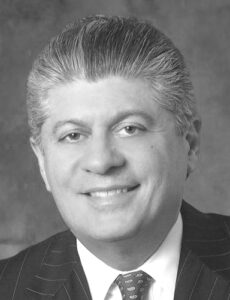The autopen controversy never goes away

Cal Thomas, syndicated columnist
The autopen has been around in one form or another since Thomas Jefferson was president. According to shapell.org, “In 2005, George W. Bush was the first president to enquire with the Department of Justice if it was constitutional for the president to sign a bill using the autopen.” He was told it was.
When Lyndon Johnson signed his name, you could tell it was his signature and not an autopen by a small dot, or period, he placed under his name on most letters and documents.
Other presidents have used the autopen, but none like Joe Biden.
Axios reports “High-ranking Biden administration officials repeatedly questioned and criticized how the president’s team decided on controversial pardons and allowed the frequent use of an autopen to sign measures late in his term, internal emails … show.”
The Pew Research Center revealed “Former President Joe Biden granted more acts of clemency than any previous chief executive on record, according to a Pew analysis of statistics from the U.S. Department of Justice. Overall, Biden granted 4,245 acts of clemency during his four-year tenure in the White House. That far exceeds the total of any other president since the beginning of the 20th century.”
The Washington Times reported “A top Justice Department official warned the Biden administration that thousands of last-minute pardons signed by autopen were legally flawed and went against President Biden’s intentions by granting clemency to violent offenders who killed children and police officers.
“Associate Deputy Attorney General Bradley Weinsheimer criticized ‘highly problematic’ language used in a single warrant, signed by the autopen, that pardoned hundreds of criminals in the final days of the Biden administration,’ according to a Jan. 18 email reviewed by the newspaper.
It seems an impossible task for any of these to have been properly vetted. What was the motivation for allowing especially violent criminals to receive clemency? Most importantly, did President Biden know about this? If he didn’t know, who signed his name to the pardons and commutations and by what authority?
This is what House Oversight Committee Chairman James Comer (R-KY) is trying to determine as he calls witness after witness from the Biden administration to testify about their knowledge of the use of the autopen.
On his House committee’s website, Comer states the reason for his investigation:… “whether President Joe Biden’s cognitive decline was covered up by his inner circle and if critical decisions were made on his behalf using an autopen, including executive actions, pardons, and policy directives. While Biden was allegedly unfit to perform his duties, several high-level aides are reported to have been operating with unchecked authority.
“Some of these witnesses, who are closest to Biden, have invoked the Fifth Amendment, refusing to testify willingly, attempting to delay their appearance before the Committee, and hiding the truth from the American people.”
When I was in school some fellow classmates would forge their parents’ signature on a bad report card or permission slip to go somewhere Mom and Dad might not want them to go.
This is the point of the Comer investigation. The autopen must only be used under the constitutional authority of the president and he should either use it himself, or the public should know the name of his designated representative.
Yes, the president has unlimited authority when it comes to pardon power, but just as any other authority can be misused and abused, voters have a right to know in the case of President Biden whether it was him signing the pardons, or the autopen, or someone else. If it was not the president, or an authorized signer, the next question should be what will be done about it?
EDITOR’S NOTE: Readers may email Cal Thomas at tcaeditors@tribpub.com. Look for Cal Thomas’ latest book “A Watchman in the Night: What I’ve Seen Over 50 Years Reporting on America” (HumanixBooks).





